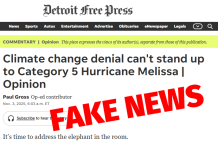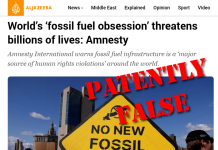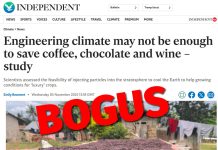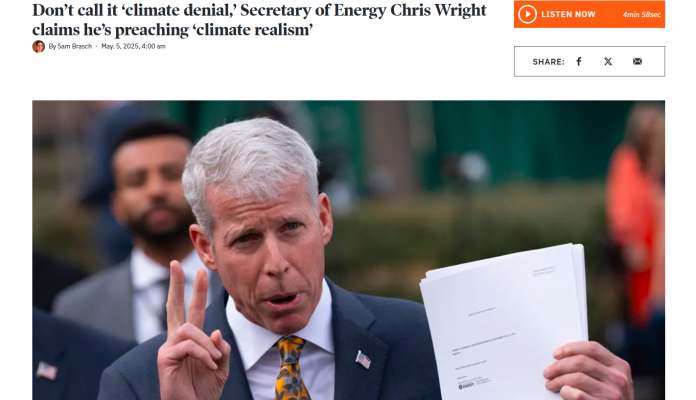Colorado Public Radio (CPR) News posted an article, titled “Don’t call it ‘climate denial,’ Secretary of Energy Chris Wright claims he’s preaching ‘climate realism,’” discussing U.S. Energy Secretary Wright’s nuanced position on the theory of human-caused climate change and fossil fuel use. The story provides fairly balanced coverage of Wrights position and reasoning, leaving the arguments for climate alarmism towards the end of the piece. On the whole CPR accurately describes Wright’s “climate realist” positions, without commentary.
CPR’s story begins by describing Wright’s history of combatting anti-oil and gas activism as a hydraulic fracturing business CEO, and how he has repeatedly stood up for the industry. After describing one such instance where he poked fun at clothing company The North Face over their refusal to make corporate jackets for an oil company despite using fossil fuels to make their products, CPR notes that Wright says “fossil fuels contribute the raw material and energy behind almost everything good about living in the 21st Century.” Wright also pointed out in a Greg Gutfeld interview that it is impossible to make “a windmill, a solar farm, a nuclear power plant or a hydroelectric dam, for that matter, without oil and gas,” writes CPR.
Wright is absolutely correct here, and CPR should get some credit for admitting it. To ignore the implications of a “leave it in the ground” approach to fossil fuels is dangerously short sighted. This is not just the case because fossil fuel generation, like gas or coal, are necessary to back up intermittent renewables for electric power production, as Climate Realism has explained before, but also because the materials that comprise every wind turbine and solar panel, along with more than 6,000 other products and items in daily use, are derived from oil and gas.
CPR goes on to say that Wright has “developed a distinct view on climate change during his career,” in that he believes that human emissions of carbon dioxide do contribute to the modest warming of the past century, but that “scientists have vastly exaggerated the consequences of climate change, and that continued human progress requires more oil, gas and coal development, not less.”
Wright calls himself a “climate realist” – a title Climate Realism is happy to share. The CPR story does not spend a great deal of time trying to dispute Wright’s position. How could they and be honest? It is absolutely the case that scientists and the media have exaggerated the effects of modern climate change, particularly in in discussions of extreme weather. Data simply do not back up the alarmist claims made by media outlets every day.
Wright seemingly practices what he preaches, CPR points out, having “approved new LNG export terminals, undone efficiency rules for home appliances, and trumpeted the benefits of alternative energy sources like geothermal and nuclear,” while maintaining that “fossil fuels are essential to help the vast majority of the human population improve their lives.”
Wright is absolutely correct here. Each of the efforts CPR listed that Wright advanced, are policies The Heartland Institute has endorsed in the past; many were listed in the “TOP 10 Climate and Energy Action Items for President Trump” compiled in conjunction with other climate realist organizations and allies.
Near the close of the story, CPR begins to push back against Wright’s position, in particular allowing some scientists to assert, contra Wright, that the recent wintertime wildfires which burned large swaths of Los Angeles were due to climate change, an opinion that Wright does not share and has spoken publicly about. Yet Wright is right again and CPR and the alarmists are wrong. As explained in the post “Wright Is Right, Washington Post, Climate Change Did Not Fuel or Cause California’s Wildfires,” weather conditions aligned for bad fire potential, but they were not part of a long-term trend. Long term data show Los Angeles has actually seen an increase in winter precipitation, and has not been drying out.
Much to the consternation of climate alarmist media, Wright seems to have a good grasp of the issues and is working in his capacity as Secretary of Energy to enact policies not driven by the misplaced and unwarranted fear that humans are causing catastrophic climate change. Instead, Wright is working to advance U.S. and global prosperity on the basis of a factual assessment of energy and climate change realities. Colorado Public Radio should be applauded for publishing Wrights views without much slant.






















